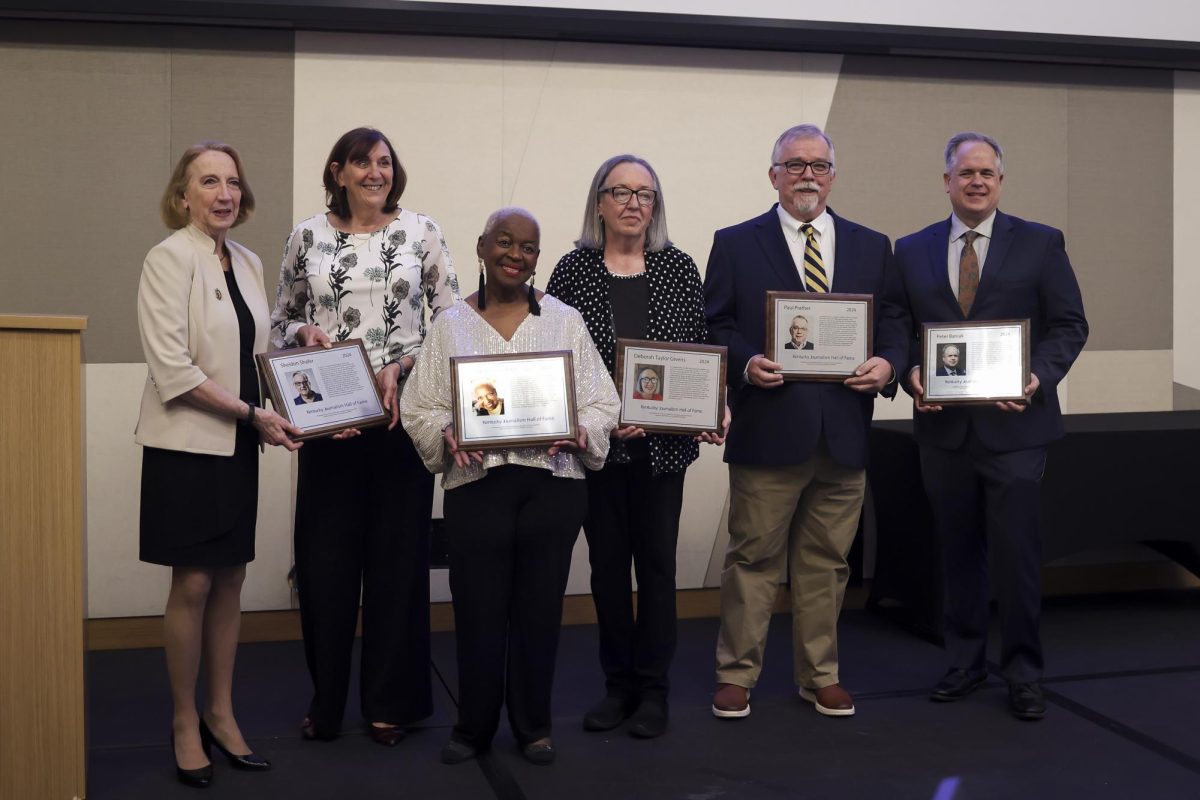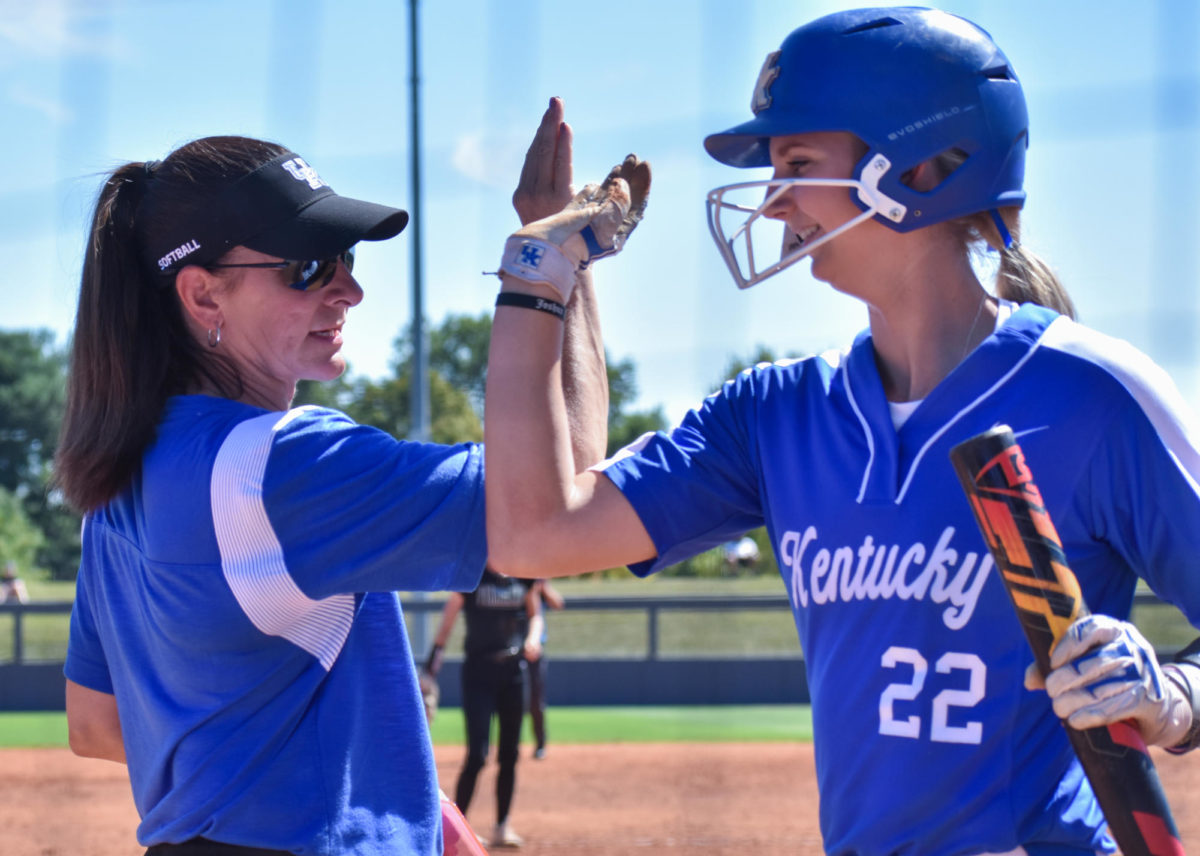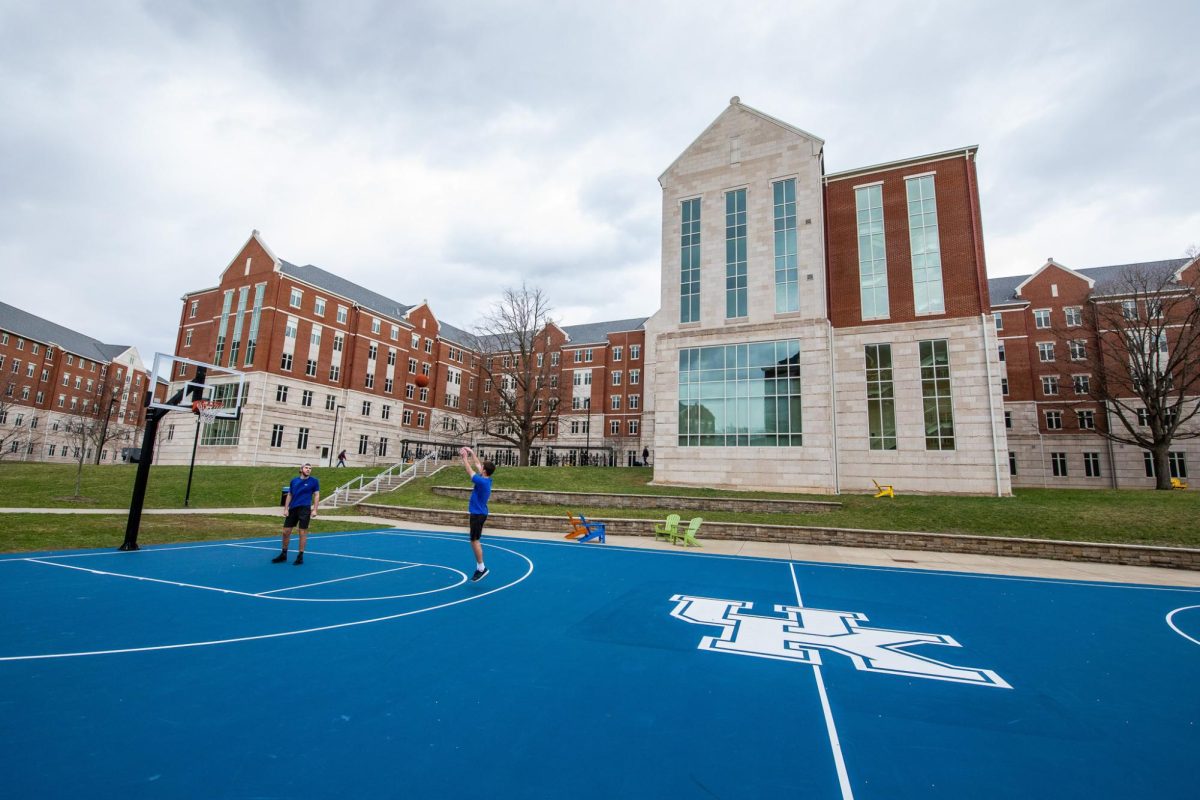Global focus achieved through Olmert speech
October 18, 2009
UK added another notch to its top-20 belt by bringing former Israeli Prime Minister Ehud Olmert to campus last Wednesday.
“Bringing international public figures to campus is precisely what top-20 universities do. They provide students with opportunities to hear multiple and varying points of view on important social and political issues,†said Assistant Provost Richard Greissman about the speech in a Sept. 29 Kernel article.
The 1,400-seat Singletary Center for the Arts auditorium was filled to capacity with students, faculty, staff and community members as UK attempted to shed light on the Israel-Palestine conflict by inviting Olmert to speak on the ongoing struggle of Middle East peace.
UK seeks a global focus, and to achieve that goal, more prominent figures need to set foot on campus and speak about major topics — not just to reach a top-20 goal, but also to educate and foster discussion at the university.
UK needs to be a part of global dialogue, especially the call for peace. As the population of the university continues to grow, there has to be initiatives to prepare for the change.
Olmert was the Israeli prime minster during the most recent Gaza war, which took place Dec. 27, 2008 through Jan. 18, 2009. Whether or not you agree with his ideologies, Olmert’s firsthand knowledge of the situation made him a viable speaker on many levels, specifically because his direct actions have influenced the situation during one of the more controversial time periods in the region’s tense history.
One issue from the proposed speech series is the timing of the series UK has put together. How many students, faculty and staff are going to give as much attention nearly six months after the first lecture to a speaker not even selected?
In a June 4 speech in Cairo, Egypt, President Barack Obama addressed the continually heightened conflict, denouncing the activities of Palestinian radicals, saying, “Israelis must acknowledge that just as Israel’s right to exist cannot be denied, neither can Palestine’s.”
UK has to do its best to be a part of the solution and promote both sides’ right to exist, not only encouraging dialogue, but hosting and sponsoring discussions and debates about the issues. As it stands, students, faculty, staff and the community have the ability to select what they want to hear.
UK must also find a speaker with as much knowledge and proximity to the situation from the Palestinian point of view to prove their goal is truly educational.
Controversy isn’t a bad thing, but there has to be a purpose behind it.



























































































































































